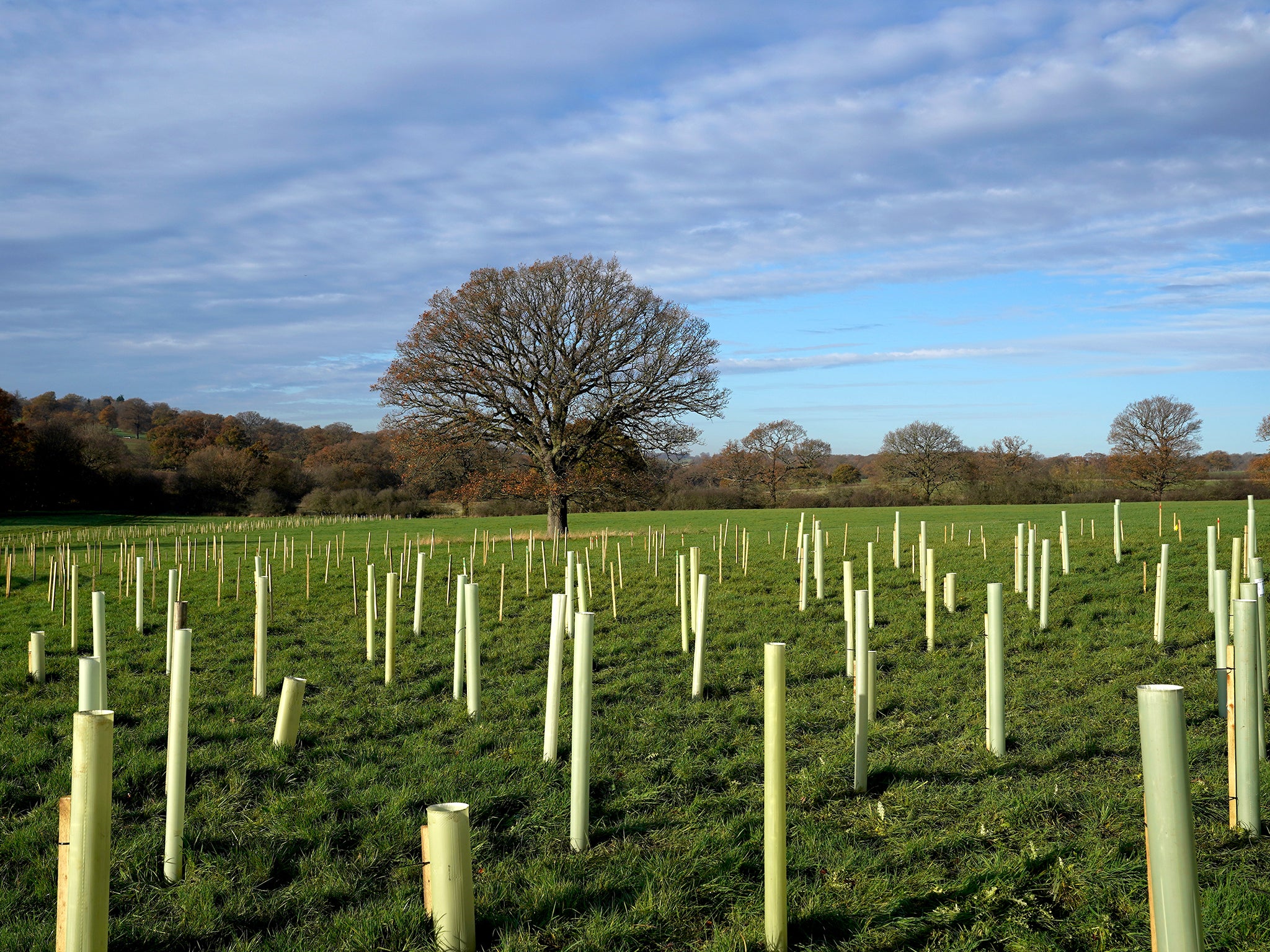Planting trees is not enough to save the planet
While planting trees can be good for all sorts of reasons, relying on tree-planting to save the planet might not be one of them – they may even do harm if planted incorrectly, reports Steve Boggan

On 11 November 2019, an army of environmentally conscious Turks planted 11 million saplings at more than 2,000 sites across their country. In Corum province, 303,150 were put into the ground in just one hour – a feat that made it into the Guinness Book of Records. As a demonstration of peoples’ desire – or need – to do their bit to combat climate change, it was a beautiful thing. The trees would grow and as part of the process of photosynthesis, they would absorb carbon dioxide, the primary cause of global warming.
Three months later, however, Turkey’s agriculture and forestry union claimed that 90 per cent of them were dead. The union’s president, Sukru Durmus, said the saplings had died because they were planted at the wrong time of year, had not been sufficiently watered and because planting trees was a job that should be carried out by experts, not enthusiastic amateurs.
It was an echo of a similar tree-planting failure in the early years of a Chinese initiative aimed at halting the advance of the Gobi Desert. The Three-North Shelterbelt Project – begun in 1978 – would see a ribbon of billions of trees running 2,800 miles along the length of the encroaching desert in northern China, a “Great Green Wall” that would hold it back. Tonnes of seeds were dropped by plane and millions of saplings planted by hand, but an analysis conducted by scientists in 2011 found that as many as 85 per cent of them had perished because they were the wrong variety for the environment in which they were expected to grow.
Subscribe to Independent Premium to bookmark this article
Want to bookmark your favourite articles and stories to read or reference later? Start your Independent Premium subscription today.
Join our commenting forum
Join thought-provoking conversations, follow other Independent readers and see their replies